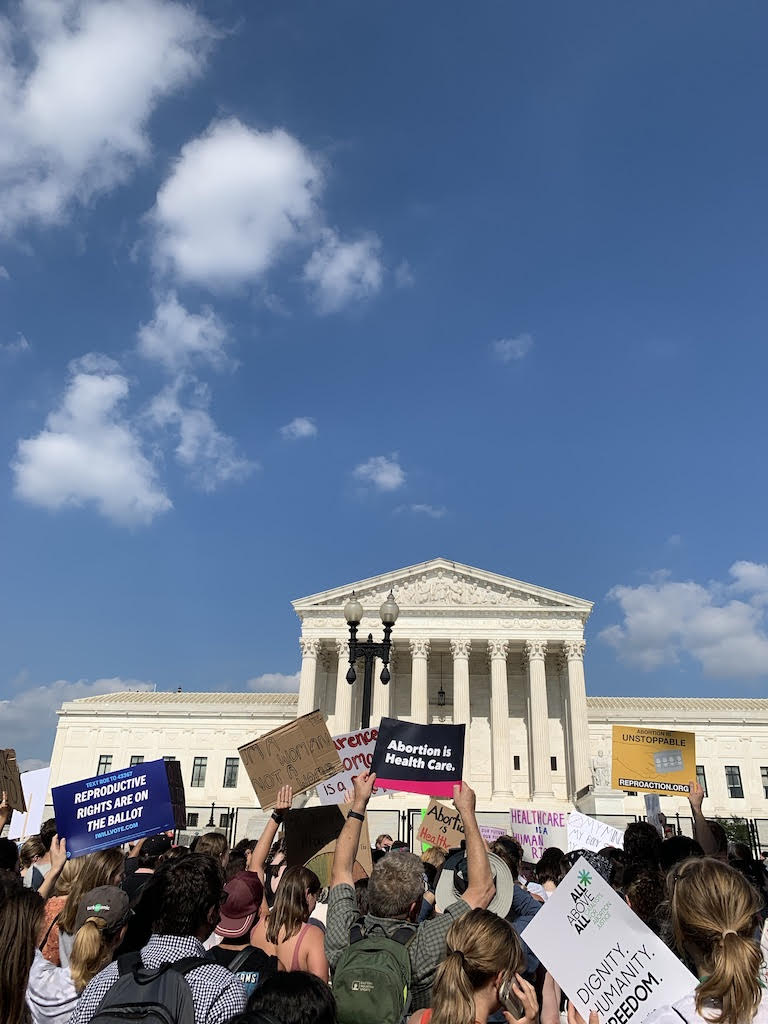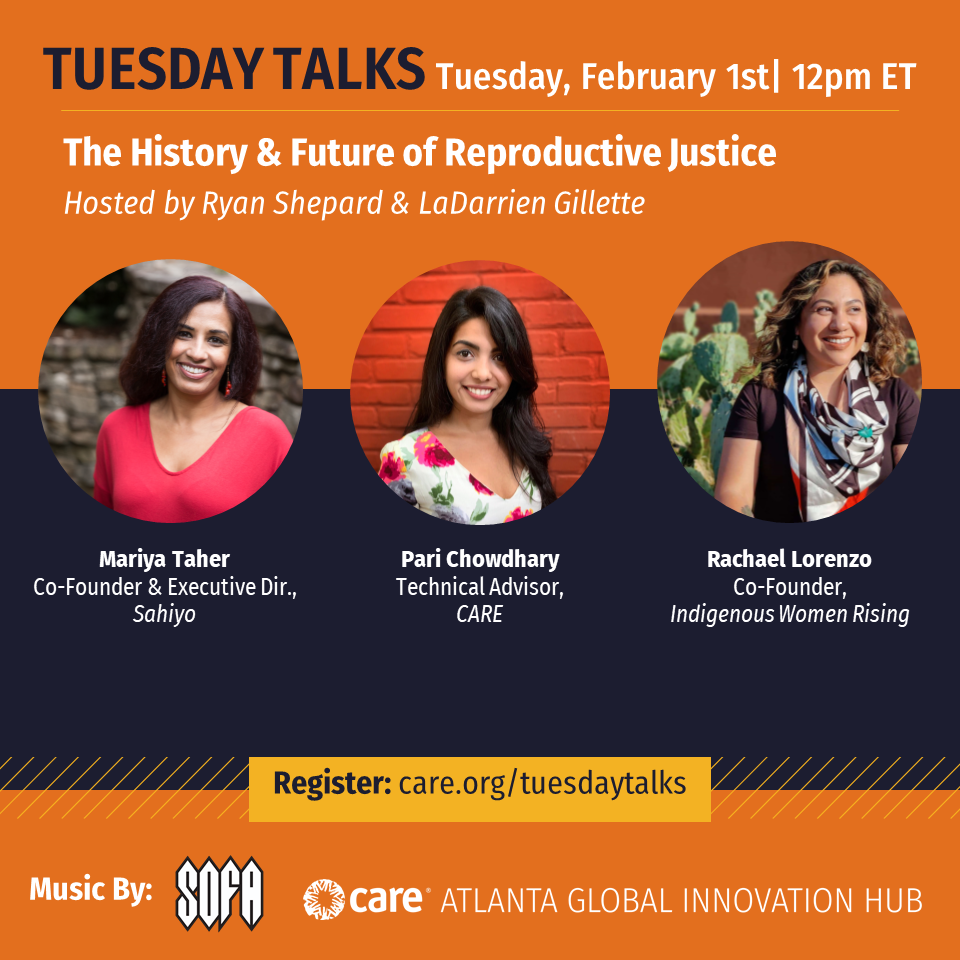The overturning of Roe v. Wade and its implications for survivors of FGC

By Trisha Kini On June 24, 2022, the U.S. Supreme Court made the devastating decision to overturn Roe v. Wade, thus denying women and those assigned female at birth (AFAB) the right to safe abortions and bodily autonomy. Bodily autonomy, the foundation for gender equality, is a fundamental human right that impacts health, education, income, and safety. The lack of access to abortion in the absence of Roe vs. Wade not only has harmful consequences for people with unintended pregnancies, but could also disproportionately impact women and AFAB people who may belong to communities that practice female genital cutting (FGC). Several harmful health complications can arise during pregnancy or childbirth for a survivor of FGC. According to a study by the World Health Organization, the perinatal mortality rate of FGC (type III)* survivors was higher than non-survivors by 55%. The study also found that survivors had a higher rate of cesarean sections, genital tract trauma, and postpartum hemorrhages. Survivors of FGC deserve the right to equitable healthcare options to protect them from these potential high risk, life threatening consequences; this includes the right to safe and legal abortions. Sahiyo interviewed three professionals involved in the anti-FGC movement across public health, reproductive health, and law disciplines in an effort to understand if the overturning of Roe v. Wade could impact survivors of FGC. The following explores highlights of our conversations surrounding abortion, FGC, health disparities, and reproductive health stigma with Karen McDonnell, PhD, Associate Professor, Milken Institute School of Public Health, and Author of FGM Toolkit; Sakina Sharp, Co-Founder of Awaaz, Lawyer, and Sahiyo Board Member; and Lizzy Dupont, MD, OBGYN. *Also known as infibulation, FGC Type III is the narrowing of the vaginal opening through the creation of a covering seal (WHO) Reproductive Health, Justice, and FGC Reproductive health and justice, which are essential human rights, imply that persons should be able to have the choice and freedom to safely reproduce, and to decide if and when they want to do so. Both the overturning of Roe v. Wade and the harmful practice of FGC directly inhibit reproductive health and justice. Dr. Karen McDonnell, Associate Professor in Prevention and Community Health, emphasized that ruling Roe v. Wade is important for an individual’s right to bodily autonomy, and their sense of choice, trust, and safety. The overruling also disproportionately impacts those who experience distrust in healthcare, and this often includes survivors of FGC. “To have that trust be violated really does inhibit our reproductive justice and our reproductive health. FGC does affect women’s reproductive health and well-being. That has been demonstrated, and so by taking that freedom, trust, and care away, you’re already talking about a vulnerable group of women from the start. Now you’re making them even more vulnerable.” It is not uncommon for survivors of FGC to feel hesitant when seeking healthcare in general. Dr. Dupont works with individuals primarily identifying as women through adolescence, birth control consultation, and pregnancy of various types, including patients who have undergone FGC. She highlighted how excluding FGC as part of the medical school curricula impacts the quality of care providers offer, thus affecting survivors of FGC. “We’re certainly not trained (in most medical schools or residency programs) on how to care for women who have undergone FGM/C. And so patient’s anxieties about approaching us as providers or about having an exam are well-founded.” Could this additional layer of concern caused by the overruled Roe further result in barriers for survivors of FGC seeking abortions? Drawing Parallels: The Overruled Roe vs. Wade, FGC, and Bodily Autonomy We often found parallels in our conversations surrounding FGC and the overturn of Roe vs. Wade. Sakina Sharp, a lawyer who has several years of experience in advocacy against domestic violence and FGC, drew a preliminary connection to women’s agency when discussing the connection between the Dobbs decision (which overturned Roe v Wade) and FGC. “The issue of FGC is around taking away women’s agency. Decisions are made on behalf of women and little girls without them ever knowing about it or consenting. And the Dobbs decision does the same, right? It takes away women’s agency, it takes away their right to decide what they want to do with their bodies. You want to see laws trending in a way where in a modern society there is recognition of women as full beings and women being able to do what they want to do with their body.” Even though the overturn is not directly connected to the human/women’s rights issue of FGC, it is a step back in the movement to give women power over their bodies. Dr. Dupont drew a similar parallel when addressing the importance of respecting patients’ decisions. “In general, in all of reproductive health, we want to respect the patient’s autonomy and ability to make decisions for herself/themselves. I think, FGC and abortion care both fall under that ethical principle. The underlying principle is that as physicians or midwives, nurses, nurse practitioners, whatever provider may be seeing the patient, it’s our job to respect the patient’s autonomy and to support their desires clinically.” Health Disparities A study at Kaiser Family Foundation found that the overturning of Roe v. Wade disproportionately impacts women of color; this is caused by health disparities such as limited access to healthcare, as well as underlying systemic inequities that make access to abortion (particularly for those living in states where it is now illegal) more challenging. Dr. McDonnell explained that survivors of FGC may now be at a larger disparity, as FGC is largely practiced by communities of color. “When you look at the prevalence, when we ask about FGC worldwide, we do see that majority of women are women of color who have experienced FGC, so you’d take knowing that and then what the overturning of Roe v Wade is going to do to exacerbate those disparities and further limit the quality of care, the access to care. It goes to show that we are going to
A CARE Tuesday Talk: The History & Future of Reproductive Justice

On February 1st, CARE Atlanta Global Innovation Hub hosted a webinar on reproductive rights and justice, and invited Sahiyo’s U.S. Executive Director Mariya Taher to speak about female genital cutting in the U.S. Pari Chowdhary (Technical Advisor, CARE) and Rachael Lorenzo (Cofunder, Indigenous Women Rising) also spoke on the panel. The speakers focused on highlighting how reproductive rights are linked to the social, political, and economic inequalities that affect a woman’s ability to access reproductive health care services. Core components of reproductive justice include equal access to affordable contraceptives and comprehensive sex education, as well as freedom from sexual violence. As the attacks on reproductive rights and justice continue to grow, it’s more important than ever to build and strengthen communities who will fight for unrestricted access to comprehensive reproductive health care. To learn more about CARE’s Tuesday Talks which were created to build bridges by exploring compelling topics, click here You can watch the full webinar here, or listen to the event on one of the following podcast streaming services: Apple Podcasts Google Podcasts Spotify Podcasts
